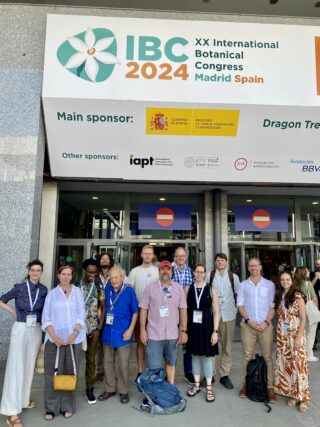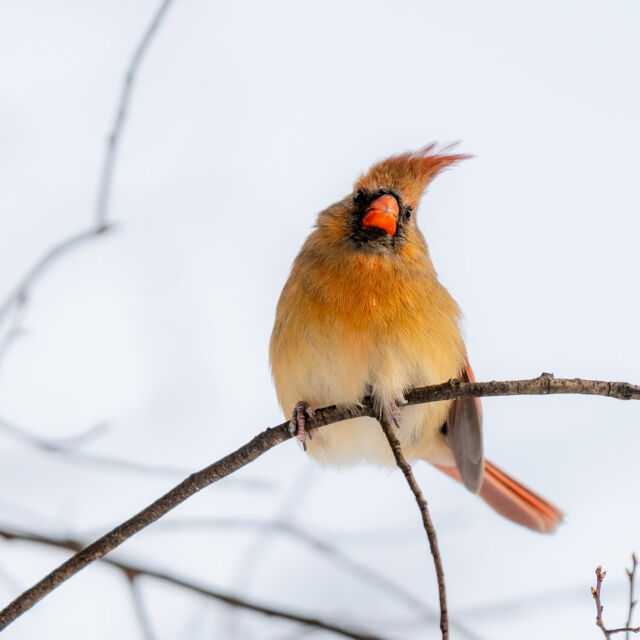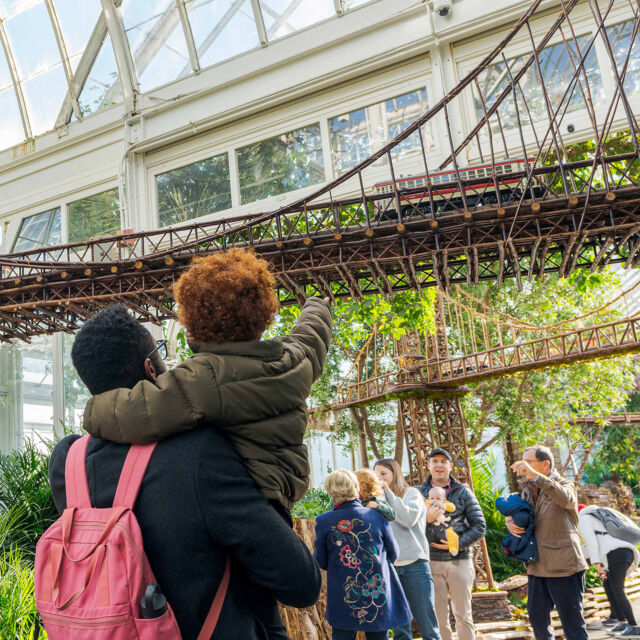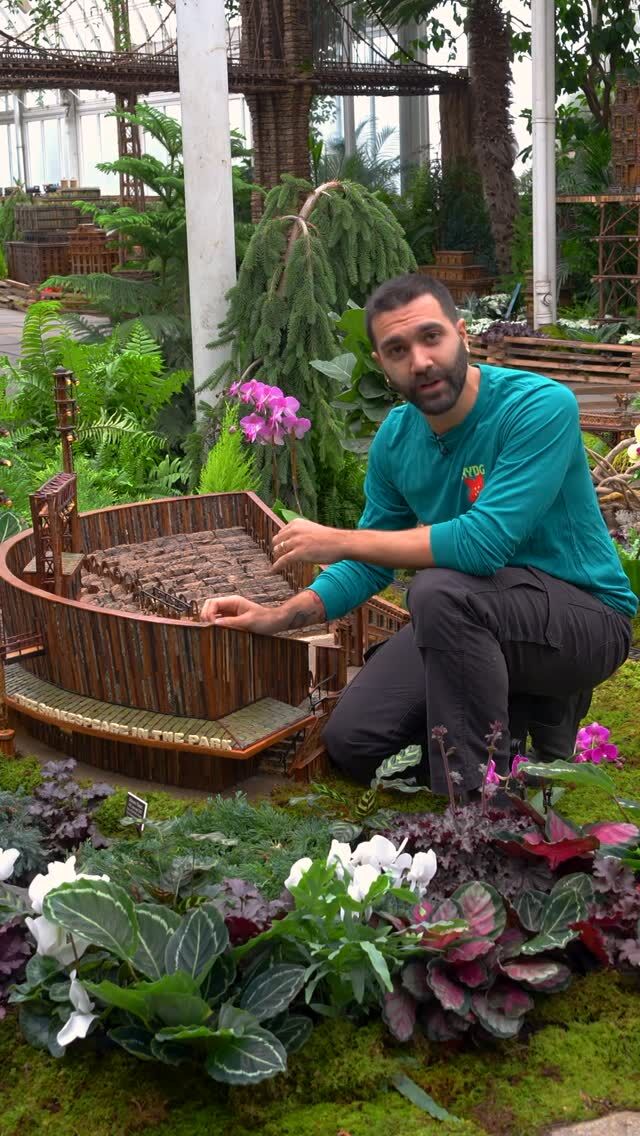The Madrid Declaration:
Focus on Plants to Create a Sustainable Future
Stevenson Swanson is Associate Director of Public Relations at The New York Botanical Garden.
At the end of the world’s largest plant science conference held recently in Madrid, more than 3,000 botanists from 95 countries—including a large delegation from The New York Botanical Garden (NYBG)—called for ten urgent actions that would put plants at the center of society’s plans for a sustainable future and strengthen connections between people and plants for planetary health and resilience.

The NYBG delegation at the recent International Botanical Congress in Madrid
From July 21 to 27, scientists at the International Botanical Congress, which is held every six years in cities around the world, attended sessions covering topics across the plant sciences—including ecology, evolution, plant form and function, and conservation—and then came together in a final session to approve the Congress’ statement, called the Madrid Declaration.
The declaration urges action on ten strategic steps by plant scientists, botanical institutions, governments, the corporate sector, and civil society. These actions are needed to lessen the degradation of plant life caused by human activities and include such measures as harnessing nature-based solutions, recognizing the central role of plants in ecosystem restoration and preservation, and supporting biocultural diversity as a way to bring together a range of knowledge systems, methodologies, and stakeholders.
“We embrace the Madrid Declaration’s call to action, and NYBG supports the crucial mission of integrating diverse knowledge and building global collaborations,” said Lawrence M. Kelly, Ph.D., NYBG’s Vice President for Science Administration. “By deepening our understanding of plant diversity and its profound impact on human and planetary health, NYBG’s programs are pivotal in shaping a sustainable future where plants are recognized not just as resources, but as the very foundation of our ecological and cultural systems.”
More than 15 NYBG scientists, emeriti curators, students, and affiliated researchers attended the IBC, where they presented 14 talks, six posters, four symposia, and a workshop. Held under the auspices of the International Association for Botanical and Mycological Societies, the IBC is designed to be a forum where scientists can share the latest knowledge from the fields of botany and mycology.
Underlying the Madrid Declaration is the realization that although plants are fundamental to human existence, much remains to be understood about the relationships between plant life and other organisms and the roles of plants in ecological systems. That means collaborations across science, technology, the arts, and humanities, including local and Indigenous knowledge, are essential to better understand and communicate the importance of plants and address the biodiversity crisis in creative and impactful ways.
Here are the Madrid Declaration’s ten calls for action:
- Plant Diversity as the Foundation
Participants call for improved support and recognition of the critical role of plant diversity studies, natural history collections, and botanical gardens.
- Botanical Education at all Levels
Participants call for increased emphasis on botanical education from early childhood through life-long learning.
- Collaborative Transdisciplinary Approaches
Participants call for more collaborative and transdisciplinary approaches to plant research, including local and Indigenous knowledge, the arts, humanities, and diverse scientific approaches.
- Addressing Inequalities in the Plant Sciences
Participants call for mutually respectful, equitable, partnership-based approaches and proper inclusion and benefit sharing for all stakeholders involved in research, policy formulation, and product development.
- Recognizing Biocultural Diversity
Participants call for improved recognition and support for biocultural diversity, including the co-production of knowledge and bringing together diverse knowledge systems, methodologies, and stakeholders.
- Plant Diversity is Central to Ecosystem Protection and Restoration
Participants call for conservation and restoration strategies that prioritize plant diversity while protecting the functioning of ecosystems and landscapes.
- Policy Based on Sound Knowledge About Plants
Participants call for evidence-based decision-making with improved integration of botanical knowledge into sustainable long-term policy decisions.
- Harnessing Nature-Based Solutions
Participants call for the increased recognition and implementation of diverse nature-based solutions that maximize species diversity, increase resilience to climate change, enhance plant conservation, and encourage sustainable management and ecosystem restoration.
- A Stronger Role of Plants in Achieving Sustainability and a Net Zero Economy
Participants call for an increased recognition of the role of plants in achieving sustainability and establishing a net-zero economy.
- Increasing Awareness of the Centrality of Plants for Planetary Health and Resilience
Participants call for increased awareness of the importance of plants for planetary health and resilience.
SUBSCRIBE
Enter your email address to subscribe to this blog and receive updates on new posts.











